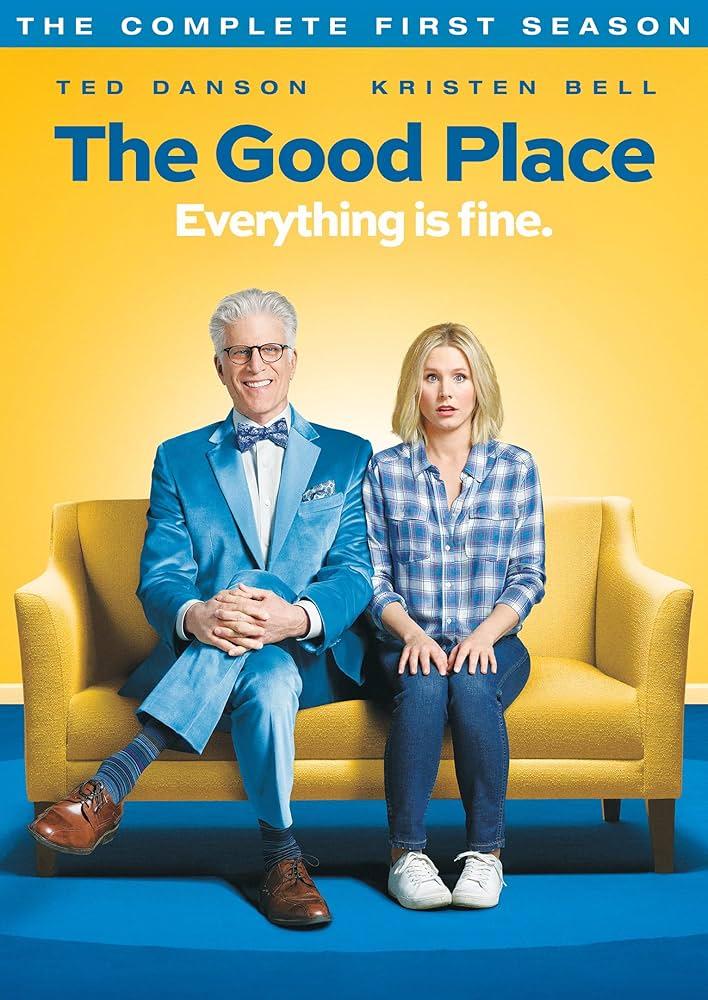In the realm of contemporary television, few shows have managed to intertwine humor with profound philosophical inquiry as effectively as “The Good Place.” This critically acclaimed series, created by Michael Schur, embarks on an ambitious journey to explore the intricate tapestry of ethical and moral dilemmas that have perplexed thinkers for centuries. Through its clever narrative and vibrant character arcs, “The Good Place” deftly employs comedy not merely as a tool for entertainment but as a means to unravel and examine complex philosophical ideas. By weaving together laugh-out-loud moments with introspective reflections on human nature, the show invites its audience to engage with questions of morality, identity, and the afterlife, all while maintaining a light-hearted and accessible approach. This article delves into the ingenious ways “The Good Place” uses its comedic framework to make the abstract world of philosophy both engaging and relatable, offering viewers a unique opportunity to ponder profound truths while being thoroughly entertained.
Analyzing Ethical Dilemmas Through Humor
In the world of television, The Good Place stands out as a brilliant example of how comedy can be used to navigate the intricacies of ethical dilemmas. Through the show’s humorous lens, viewers are introduced to profound philosophical ideas such as utilitarianism, Kantian ethics, and existentialism. The characters, led by the ever-curious Eleanor Shellstrop, frequently find themselves in absurd situations that cleverly highlight the complexities of moral decision-making. This comedic approach not only entertains but also encourages audiences to reflect on their own ethical beliefs in a light-hearted yet meaningful way.
- Utilitarianism: The show frequently poses questions about the greatest good for the greatest number, often leading to hilariously convoluted situations.
- Kantian Ethics: Characters grapple with the idea of duty and the categorical imperative, sometimes resulting in comically rigid adherence to rules.
- Existentialism: Through its narrative, the series explores themes of freedom, choice, and the search for meaning, all wrapped in a comedic package.
By leveraging humor, The Good Place makes philosophical exploration accessible and engaging, proving that even the most complex ethical questions can be dissected with a dose of laughter.

The Role of Character Development in Conveying Philosophical Concepts
In “The Good Place,” character development is ingeniously intertwined with the series’ exploration of philosophical concepts, offering viewers a lens through which to examine ethical dilemmas and moral growth. The transformation of characters like Eleanor Shellstrop and Jason Mendoza is not merely a narrative device but a profound journey through the realms of moral philosophy. Initially portrayed as self-centered and morally ambiguous, their evolution underscores the notion that personal growth is achievable and that ethical behavior can be cultivated through experience and reflection. This character arc is essential in illustrating philosophical ideas such as utilitarianism, Kantian ethics, and virtue ethics, making these concepts accessible and relatable.
- Eleanor’s Journey: Her transformation from a selfish individual to a morally conscious person exemplifies the principles of Aristotelian virtue ethics, emphasizing the importance of character and habits in moral development.
- Chidi’s Dilemma: As a moral philosophy professor, Chidi’s indecisiveness highlights the complexities of ethical decision-making, embodying the tensions between deontological and consequentialist theories.
- Jason’s Simplicity: Through his simplistic worldview, Jason inadvertently showcases the essence of moral luck, questioning whether intentions or outcomes are the true measure of ethical action.
These character-driven narratives not only entertain but also provoke critical thinking, encouraging audiences to reflect on their own moral choices. By using humor and relatable scenarios, “The Good Place” effectively demystifies complex philosophical ideas, making them digestible for a broad audience.

Balancing Entertainment and Intellectual Engagement
In an era where audiences are constantly bombarded with content, The Good Place manages to distinguish itself by skillfully blending humor with profound philosophical inquiry. The show leverages comedy as a tool to delve into complex moral dilemmas, using laughter as a means to ease viewers into deep philosophical discussions. By embedding philosophical concepts within the narrative, the series not only entertains but also encourages viewers to reflect on their own ethical frameworks.
- Engaging Characters: The diverse personalities and backgrounds of the characters serve as a microcosm for various ethical viewpoints, making philosophical debates more relatable and engaging.
- Humor as a Teaching Tool: The show’s comedic elements simplify intricate ideas, making them accessible to a broader audience without diminishing their intellectual depth.
- Layered Storytelling: Through its plot twists and character development, the series invites viewers to question their assumptions and explore the grey areas of morality.

Recommendations for Viewers Seeking Deeper Understanding
For those who wish to delve deeper into the philosophical underpinnings of The Good Place, consider exploring some of the core concepts and theories that the show humorously tackles. Moral philosophy and ethical dilemmas are at the heart of the narrative, and viewers can benefit from engaging with these ideas more thoroughly. Here are some recommendations:
- Read Classic Philosophical Texts: Dive into the works of Immanuel Kant and Jeremy Bentham to understand the theories of deontology and utilitarianism that are central to the show’s plot.
- Watch Educational Content: Seek out online lectures or courses that break down complex ethical theories into digestible segments, making it easier to appreciate how they are humorously portrayed in the series.
- Join Discussion Groups: Participate in forums or book clubs that focus on philosophy in pop culture. Engaging with others can offer diverse perspectives and deepen your understanding of how the series intertwines comedy with philosophical inquiry.
By approaching these resources with an open mind, viewers can enhance their appreciation of how The Good Place cleverly uses comedy to illuminate profound philosophical questions. This not only enriches the viewing experience but also provides a unique lens through which to view ethical issues in everyday life.
